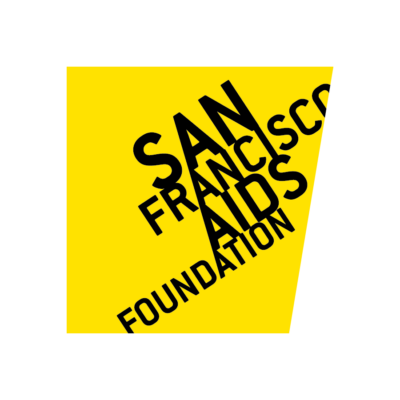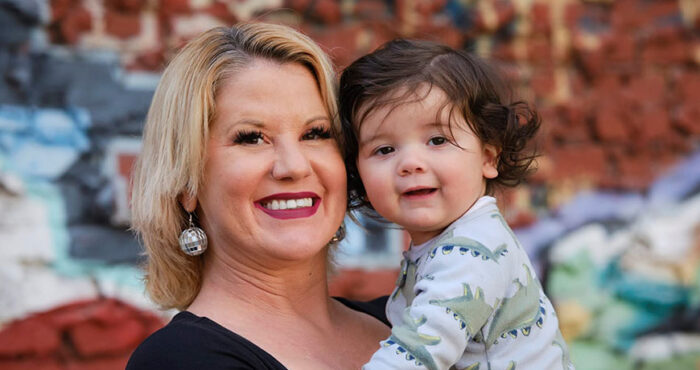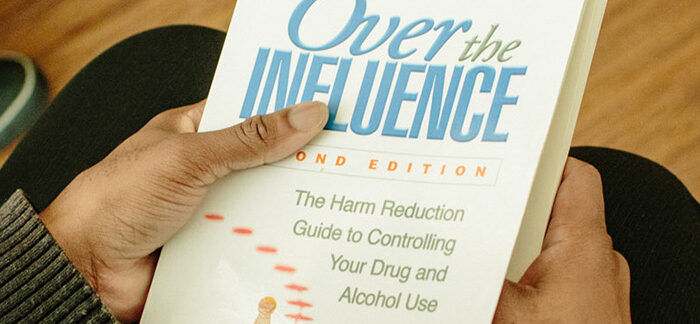We don’t say “addicts”
Have you ever wondered what it feels like for a person who uses drugs to hear themselves be described as an “addict”? Or why substance use counselors prefer to use the term “substance use” over “substance abuse”?
How we talk about people who use drugs, substance use and harm reduction matters a lot to the staff members of The Stonewall Project, the harm reduction substance use program at San Francisco AIDS Foundation. They recognize that stigmatizing language can further marginalize people who already may feel shame and doubt about how they use substances. Every day, our counselors work against the negative perceptions of drug use to bring clients empathetic and evidence-based substance use counseling and care.
We can all be engaged in the fight against stigma, and learning less-stigmatizing language around drug use is a good place to start. Here, four long-time substance use counselors share their tips on how to shed stigmatizing language about drug use—and the words, phrases and ideas you can incorporate into your vocabulary instead.
We don’t describe people as “clean” or “dirty”
Rick Andrews: I hear people use the words “clean” or “dirty” to describe if they’re using (or if someone else is using) all the time. But there’s a negative judgment associated with these words. Those words can have a stigmatizing association on clients, like shame and judgment about the choices they make. If people are talking about results from a drug test, I encourage people to use terms like positive/negative, or reactive/non-reactive instead of saying they’re “clean” or “dirty.”
It might also make sense to be more specific. A person may have a goal to reduce or stop using one type of substance, like meth, but decide that other substances may not be a problem for them, like alcohol. Someone could say, “I’ve been abstinent from meth for 30 days,” instead of saying, “I’m clean.”
Rick Andrews is the manager for the Positive Reinforcement Opportunity Project (PROP) and has been with the Stonewall Project for seven years.
“Abstinence” can be part of “harm reduction”
Paul Kilfoil: Part of harm reduction is meeting people where they’re at. And figuring out what they want their goals to be, and what might be a reasonable goal for them. We have three different “tracks” at Stonewall, and traditional abstinence is one of them. (Some people think that abstinence is not part of harm reduction, which is not true—harm reduction can absolutely include abstinence.)
Traditional abstinence means not taking any drugs or alcohol, except as prescribed.
Targeted abstinence means not taking substances that are problematic right now. For example, some people might decide to stop using crystal meth or crack but decide that alcohol, club drugs or marijuana are not a problem for them.
Substance use management means that the person doesn’t necessarily want to stop taking any substances, but does want to “fine-tune” their use so that they experience less negative effects on their health or wellbeing.
Paul Kilfoil is a counselor for the Sex & Dating, Abstinence Skills and Targeted Abstinence groups and has been with the Stonewall Project for 13 years.
The myth of “cross addiction”
Christopher Powers, LMFT: Some people assume that if you have a problem with one kind of drug or substance, you’ll have problems with all drugs or substances. But research doesn’t indicate this to be true: Many people may feel like they can’t control their use with some substances but they absolutely can control their use of others.
This is the myth of “cross addiction.” It’s a myth worth correcting, too, if people are interested in changing their substance use but fear or worry about having to abstain from all drugs or alcohol in order to make meaningful changes. Every day at Stonewall, we see people who are able to successfully manage their use or use targeted abstinence to keep their substance use in line with their life values.
Christopher Powers, LMFT is a counselor for the Outside In, Sex & Dating, 6th Street Harm Reduction and Harm Reduction Skills groups and has been with the Stonewall Project for seven years.
We don’t describe people who use drugs as “addicts”
Jeremy Prillwitz, MA: We don’t call people “addicts” because it’s a judgmental term. Who are we to say that a person is “addicted” if they don’t experience their substance use in that way?
Our model of care is a client-centered approach. Instead of using judgmental terms about substance use like “abuse” or “addict,” we use neutral terms that put the person first. We’ll describe someone as “a person that uses substances,” rather than a “drug addict.” Basically, we want to let people identify as they’re comfortable identifying, and we try not to put labels on people.
Jeremy Prillwitz, MA is counselor for the substance use management skills, intro to harm reduction and mindfulness groups, and has been with the Stonewall Project for six years.
—
The Stonewall Project offers a variety of harm reduction counseling services that integrate substance use, mental health and HIV prevention and education for gay men and other men who have sex with men.










